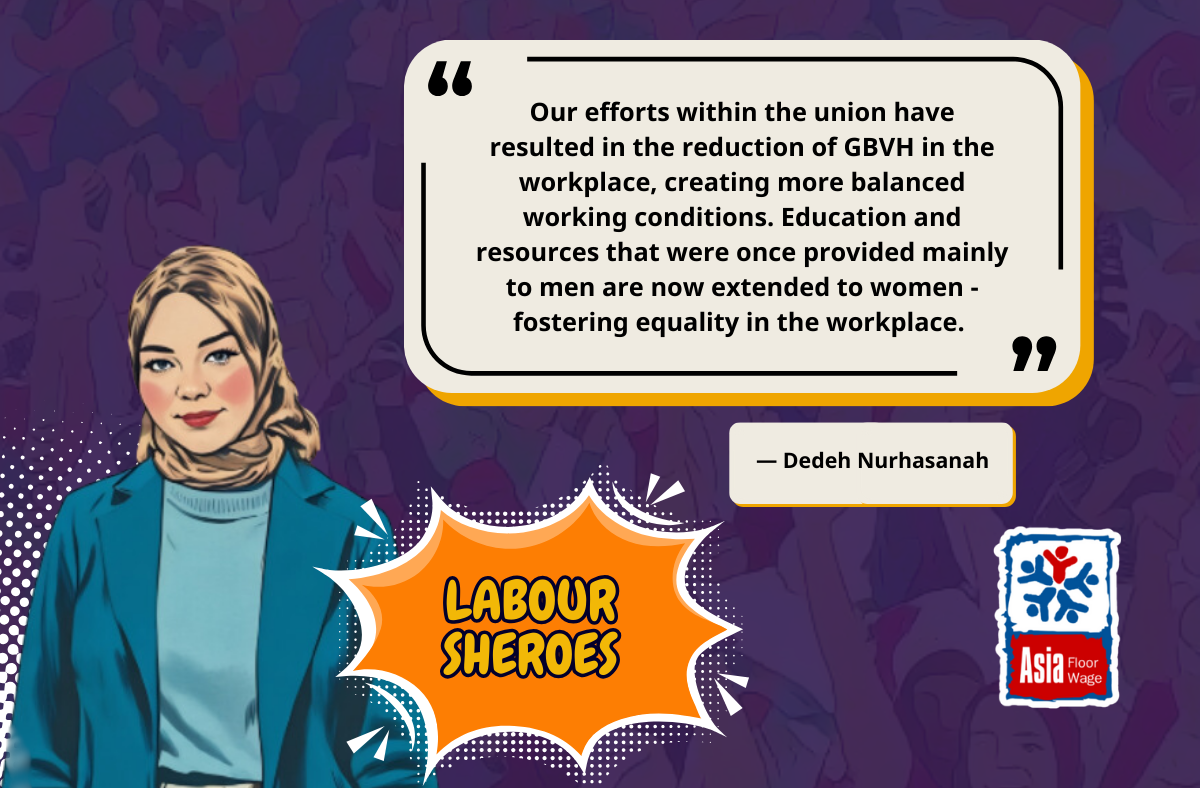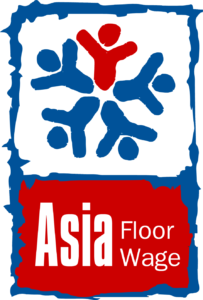From Cianjur’s Mountains to Factory Floors: My Fight for Justice

The mountains of Cianjur shaped my childhood, but it was the walls of garment factories that would shape my destiny. I am Dedeh Nurhasanah—Ndeh to those who know me—and this is my story of resilience, determination, and the ongoing battle against workplace injustice.
I grew up in Cianjur, where I was surrounded by mountains and a southern coastline. I lived with my parents and two sisters, and my childhood was a happy one. Although we lived simply, my sisters and I were able to complete our education and secure indoor work – sheltering us from unforgiving external elements.
Family is the most important aspect of my life—without them, I am nothing. I am someone who enjoys trying new things and engaging in different activities. My dream is to be smart, happy, and successful. If I could choose anything in this world, I would choose happiness and comfort in life.
In 2015, I learned about job openings at the Pou Yuen Indonesia Factory (PYI) and applied by sending my application through the nearest post office. I submitted my CV along with the required documents. A month later, I received a call to participate in a series of tests. Alhamdulillah, I passed and was accepted as an employee at PYI, where I also became a member of one of the factory’s unions.
Working at PYI has not always been smooth. I worked as a personal assistant to the AFL (production supervisor) of the building, where workers were often transferred to other production sites. These transfers often led workers to report their grievances to their unions, who in turn approached the AFL and me for clarification. My department was unique – housing multiple unions – which made resolving such issues even more complicated.
Life inside the factory is not always as it seems to outsiders. Gender-Based Violence and Harassment (GBVH) remains a frequent challenge, affecting workers in various ways. While some workers look the other way, others are directly affected. I have personally handled cases involving GBVH, including situations where women workers were too afraid or embarrassed to report harassment, fearing judgment or ridicule.
In one case, I advocated against harassment by interrogating the involved parties and witnesses, ensuring the case was monitored to prevent a repeat offence. While we always prioritised mediation but if it failed, we did not hesitate to escalate the issue in accordance with the Collective Bargaining Agreement (CBA).
Another significant case involved a rule requiring all supervisors to be women due to a perception that male supervisors were more rebellious. To address this, we educated male supervisors, emphasising that the misuse of authority or violation of regulations is not a gender-specific issue.
Our efforts within the union have positively impacted the reduction of GBVH in the workplace, creating more balanced working conditions. Education and resources that were once provided mainly to men are now extended to women – fostering equality in the workplace.
Eliminating GBVH in the workplace is not easy, but it is not impossible. The challenges range from handling work tasks to managing diverse personalities and perspectives. One of my toughest challenges was dealing with an excessively narcissistic person, which tested my patience. Eventually, I found that dealing with the matter with utmost patience was the most effective strategy to overcome this difficulty.
Amid the challenges, there have been moments of pride as well. In 2013, I worked for an outsourcing company at the Indonesia Epson Industri Factory in the EJIP Cikarang Industrial Area, Bekasi. When 8,000 Epson factory workers faced contract terminations and only 30 were selected for permanent roles, I was one of those candidates. After a month of rigorous testing and an interview with a psychologist and a Japanese planning manager, I was one of the three chosen for a permanent position, the only one placed in West Java. The pride I felt when I saw my parents’ smiles at my success was unforgettable.
My efforts are not just for myself; I strive to make a positive impact on others. To maintain a safe, comfortable, and equal work environment, continuous efforts are essential, such as updating knowledge on regulations and increasing self-confidence. I draw inspiration from a person who has a positive mindset and always says “YES” to opportunities, encouraging me to embrace every chance for growth.
Nothing in life is coincidental; everything results from choices. We should never waste opportunities, just as we should unite to fight workplace injustice. When we come together and act, our voices are heard. The support from CBAs, union membership, and the Anti-Violence Handling Team (TPAK) strengthens us. Problems won’t be solved through complaints alone; action, unity, and collective effort are essential for achieving justice.
Dedeh is a Shoe Worker from Cianjur, Indonesia. Her story is part of ‘Labour Sheroes,’ an initiative under the 16 Days of Activism campaign by Asia Floor Wage Alliance. Through this series, we share the stories of women garment workers from South and Southeast Asia who are breaking barriers, fighting against workplace violence and harassment, and leading the change for better working conditions in the global garment industry.
